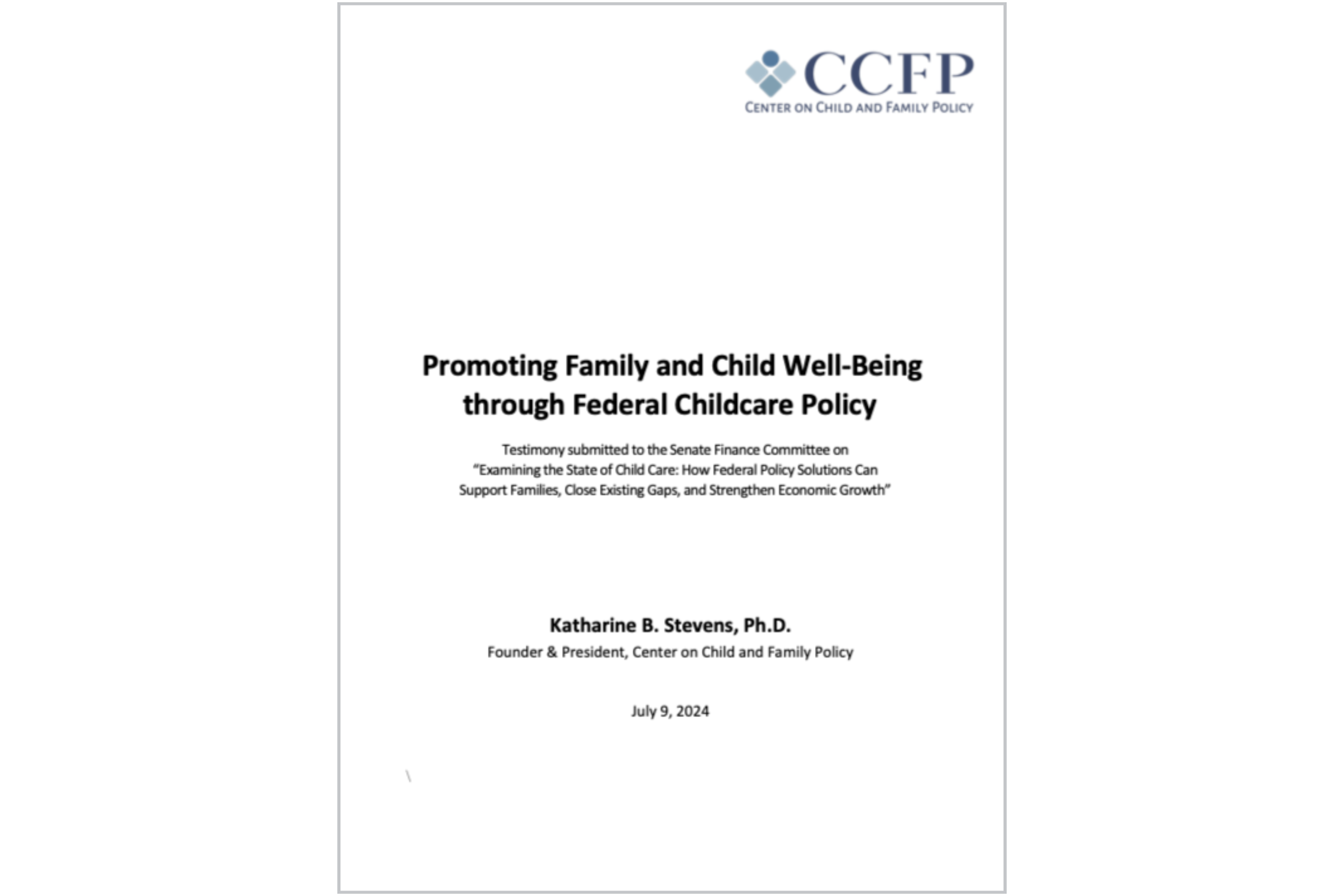FEDERAL & STATE POLICY
Georgia Mjartan explains how First 5 South Carolina’s innovative new technology streamlines access to early childhood services, cutting red tape and empowering parents to better support their children.
Following her testimony at the Senate Finance Committee’s hearing on “Examining the State of Child Care,” Katharine Stevens answered Senators’ questions on four key childcare policy topics.
Katharine Stevens joins the Economics of Flourishing series at the Archbridge Institute to discuss the role of education, parental stability, and skills development in fostering human flourishing.
Federal policy must target the lower-income families who need access to good childcare the most — aiming to empower parental choice, ensure better use of current federal funds, and promote a much-increased state role in funding childcare.
Federal policymakers should aim to: 1) Boost choice for low-income parents. 2) Shore up family childcare. 3) Break down bureaucratic silos to amplify impact of current funding. 4) Leverage a broader range of federal funds. 5) Promote state leadership in early care and education.
Katharine talks with Ivana Greco about her unusual path from Harvard-educated attorney to full-time "stay-at-home mom," caring for her toddler and homeschooling her two young sons.
Dr. Katharine Stevens joins host Nic Dunn of the Sutherland Institute to help recenter true pro-family policy at the core of public debates and offer policymakers and voters a framework for a better approach.
Katharine Stevens is joined by Joe Waters, co-founder and CEO of Capita, to discuss Capita's origins and work to improve the lives of children and families.
Brad Wilcox, professor of sociology and director of the National Marriage Project at the University of Virginia, discusses the decline in marriage among lower-income adults and explains its role in family strength and well-being.
Cynthia Osborne discusses the work of the Prenatal-to-Three Policy Impact Center and describes the state-level policies and strategies highlighted in the Center’s recently-released 2023 State Policy Roadmap.
An expert panel joins CCFP and the Niskanen Center to discuss Katharine Stevens’s new report on the strengths and weaknesses of Build Back Better’s early care and education legislation, and the best path forward for federal policy.
Katharine Stevens interviews economist Art Rolnick about his nationally recognized work with the Minnesota Early Learning Scholarships program, a parent-choice-driven model providing scholarships to parents with children from ages prenatal to five.
Katharine Stevens interviews Chris Bullivant about why social capital matters to a thriving society, and how the foundation of social capital is formed through children’s secure attachment established in the birth-to-three period.
In the second part of this two-part conversation, Katharine Stevens continues her discussion with economists James Heckman and Jorge Luis Garcia about their pioneering research on how improving parenting is the essential mechanism of effective early childhood programs.
In the inaugural episode of CCFP's new podcast, Katharine Stevens interviews renowned economists James Heckman and Jorge Luis Garcia about their collaborative research on the power of early childhood interventions to promote social mobility and build human capital.

















